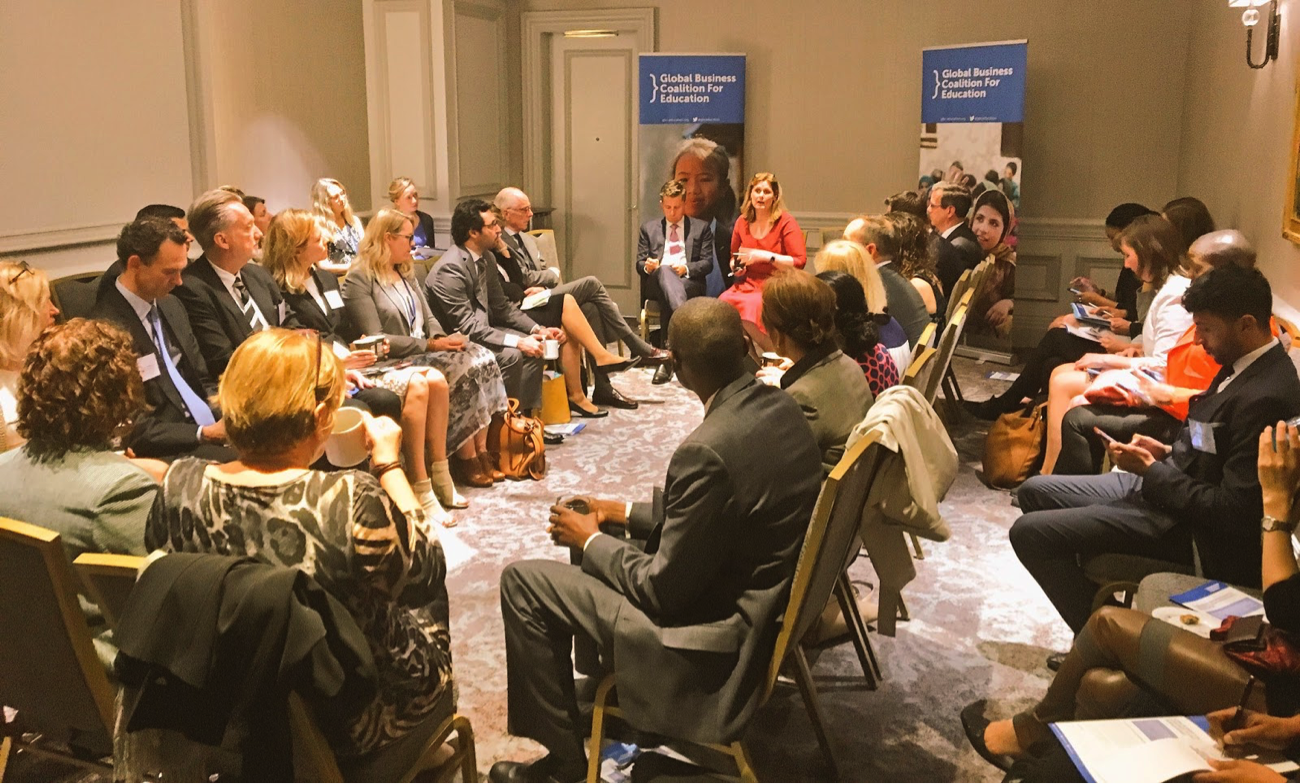Business Community Discusses Strategies to Support Education in Emergencies at GBC-Education Meeting

Education can be life-saving during times of conflict and crisis. It gives children a place to feel safe and protects them from vulnerabilities to trafficking, child labor, early forced marriage, or recruitment into armed groups. Schools can also serve as dissemination points for crucial information about services and safety during crisis. Unfortunately, education is traditionally seen as a luxury rather than a necessity during emergencies. For example, of all the humanitarian aid in 2016, less than 2% went towards education.
On the afternoon of April 20th, donor agencies, implementing partners, and Global Business Coalition for Education (GBC-Education) members gathered together for a lively discussion on how private sector contributions and partnerships can help overcome the challenges of providing education to children trapped in emergencies. During the meeting, GBC-Education presented an update on our commitment to mobilize in-kind services in private sector support to education in emergencies and progress made through the Rapid Education Action (REACT) initiative.
Sarah Brown, Executive Director of GBC-Education, opened the discussion by highlighting the critical moment presented by the launch of the Education Cannot Wait (ECW) fund. GBC-Education has supported the efforts of the ECW fund since its launch nearly one year ago at the World Humanitarian Summit.
“The launch of the Education Cannot Wait fund has created an opportunity for engagement of the private sector” she said. “We have an opportunity to look at innovative partnerships and innovative financing.”
Brown then handed the conversation over to GBC-Education Advisor and former UK Ambassador to Lebanon, Tom Fletcher, to share further details on what this support can look like. Speaking on the desire for a collaborative approach to business engagement that allows room for more than simply financial contributions, Fletcher posed the question: “Can we find a way to make it more interactive and make business feel that they are part of the solution and not just give them a laundry list of things they can pay for?”
Fletcher then explained how GBC-Education’s REACT aims to do just that and turned attention to the newly released progress report. He shared details on the initial pilot partnerships already brokered through REACT currently underway in Lebanon, Iraq, and Somalia. Having gathered details on resources available from 50 industry-leading companies across various sectors, Fletcher emphasized that now “we hope that through ECW we can get these very practical needs that we can respond to.”.
The floor was then opened up to a broader group discussion centered around what can be achieved when the private sector, governments, and civil society work together to restore and rebuild education in emergency contexts. Newly appointed Director Designate of ECW, Yasmine Sherif emphasized the need to establish a relationship between businesses who want to invest in humanitarian emergencies and the children caught in these crises.
Also in attendance was Annemiek Hoogenboom of the People’s Postcode Lottery, who was recently announced as the first business representative for the ECW High-Level Steering Group.
Closing out the meeting, Tom Fletcher called for continued engagement from all sectors represented in the room: “Do let us know where you have best practices and specific requests in the field. Please continue to work with us on the idea.”
If your company is interested in signing up to REACT, please complete this short survey. For more information, please contact Sherif Kamal at sherif@gbc-education.org.
